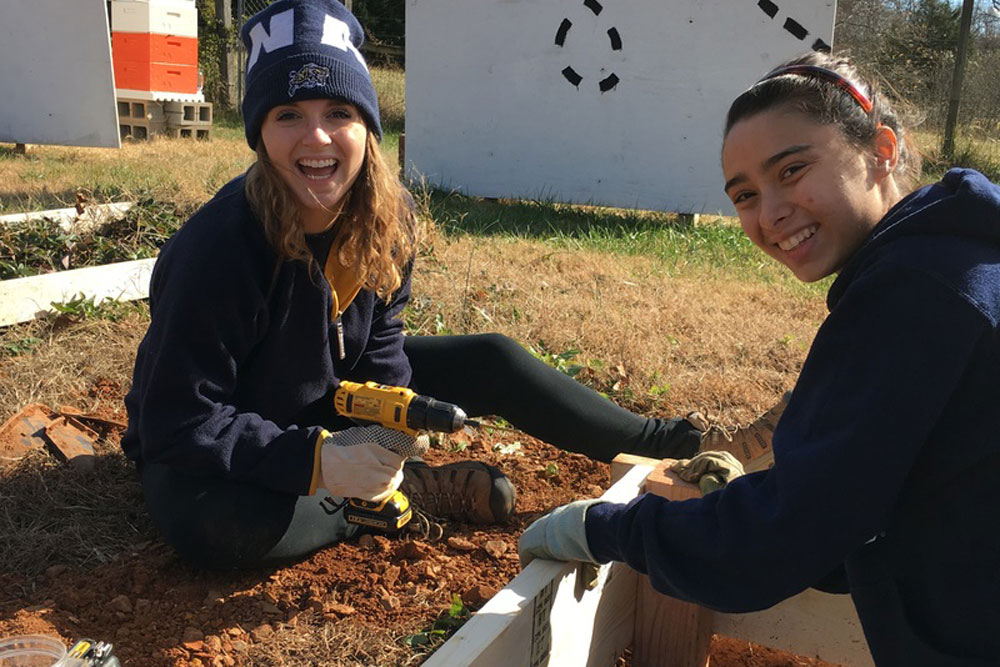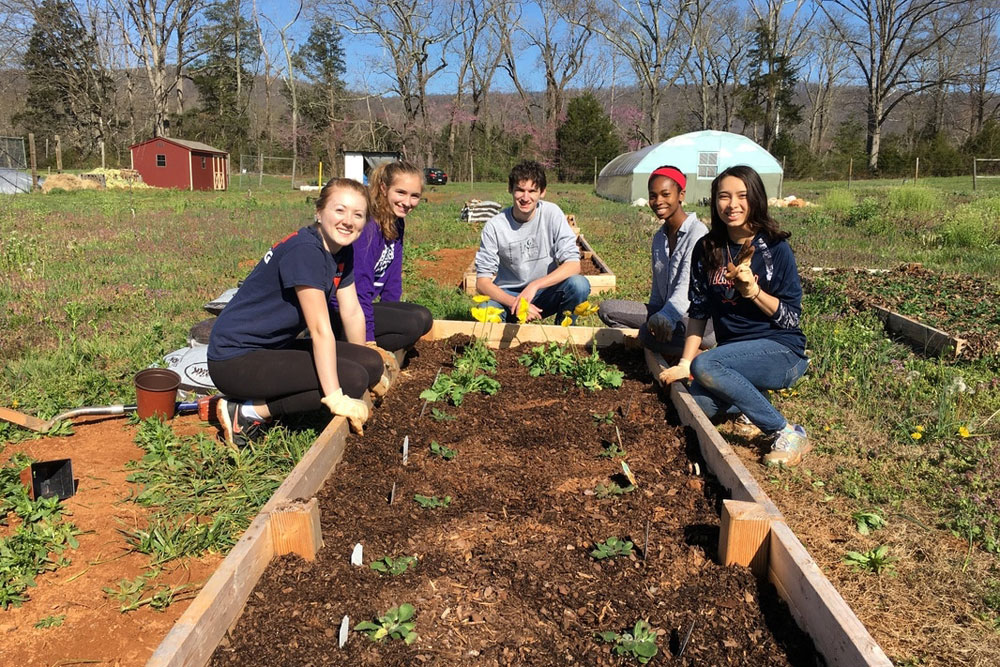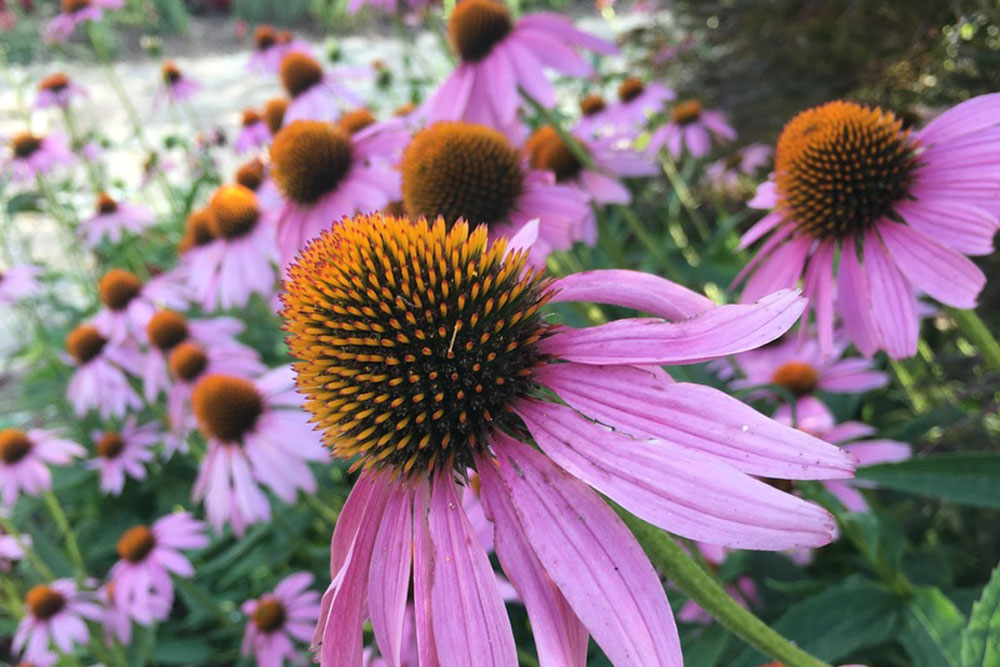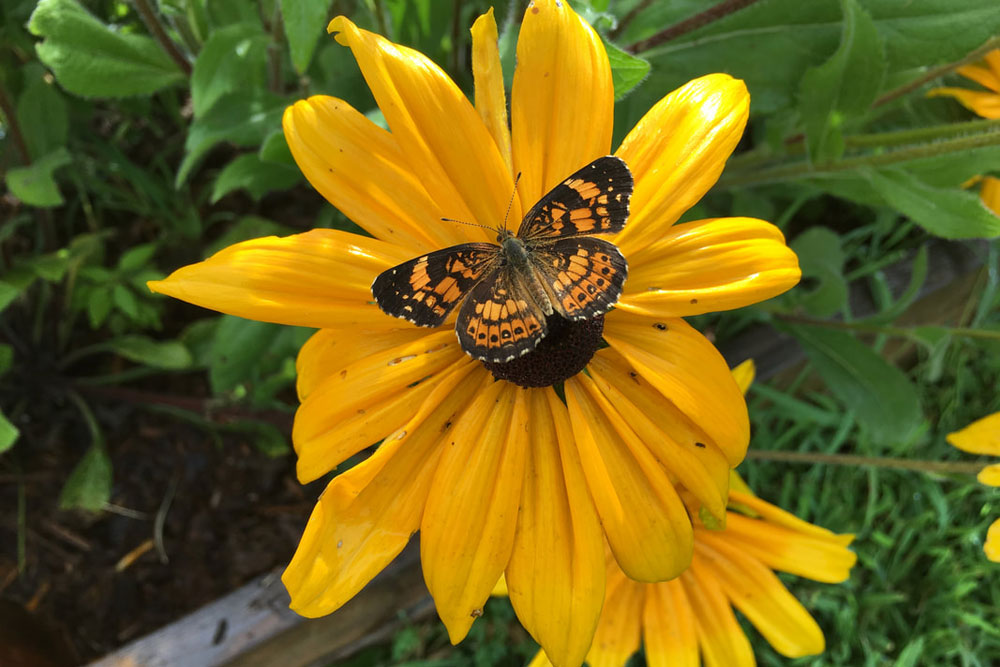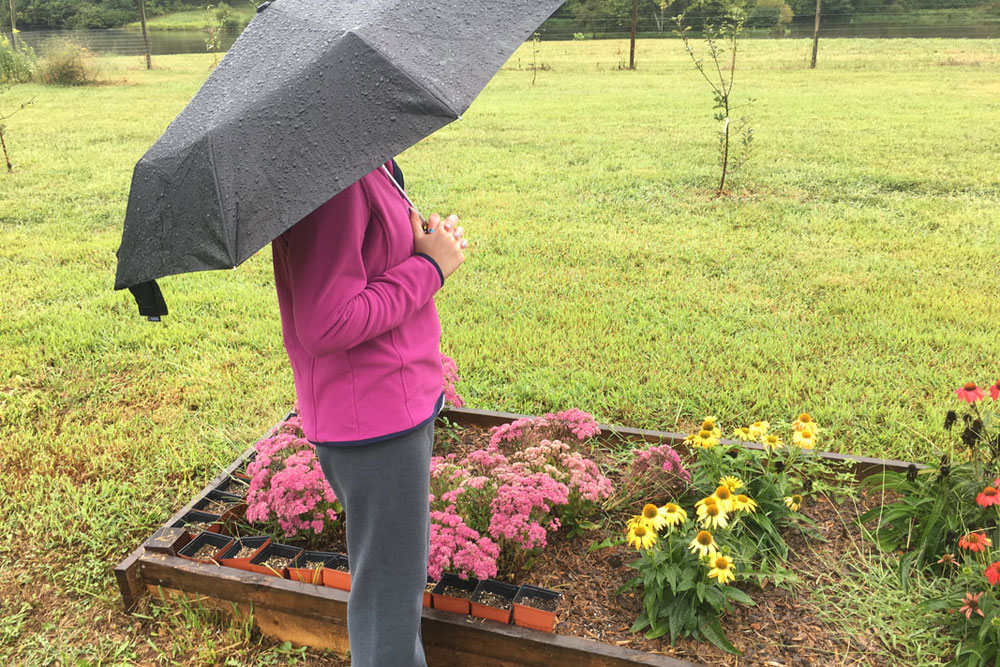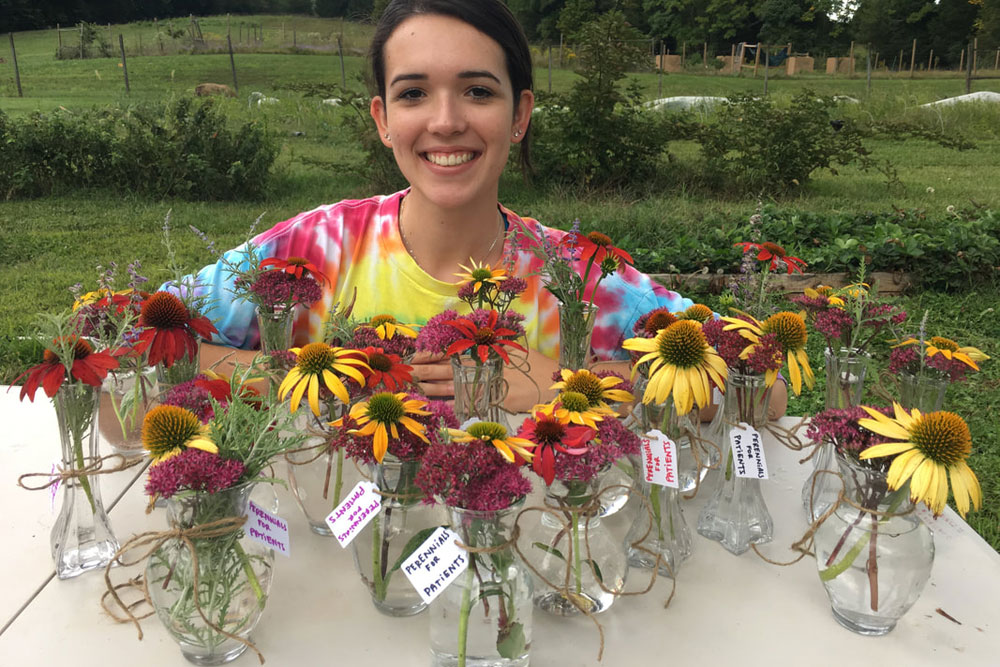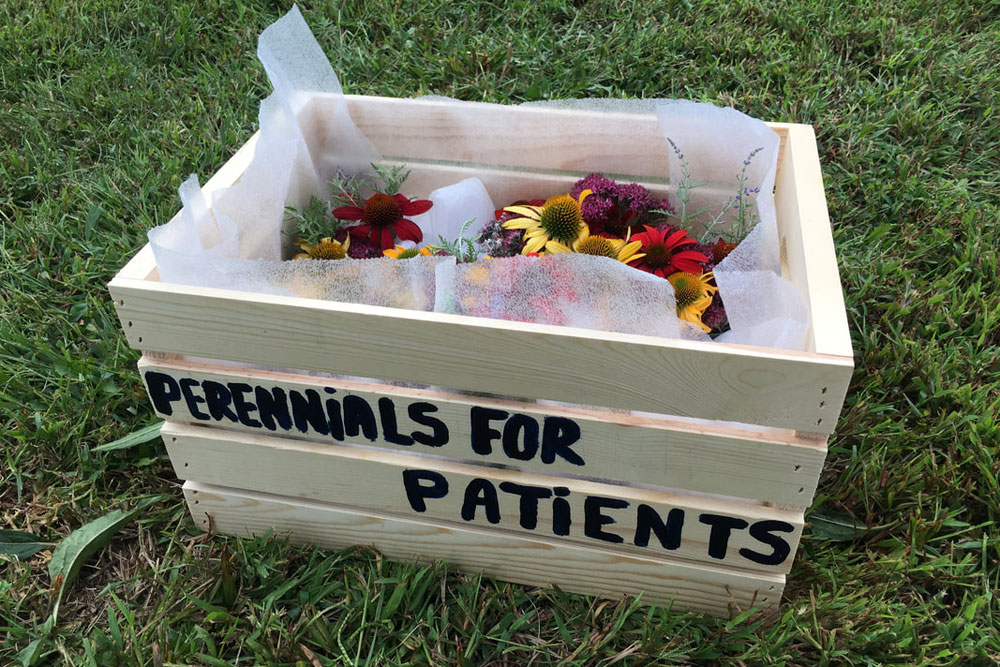A Blossom's Balm
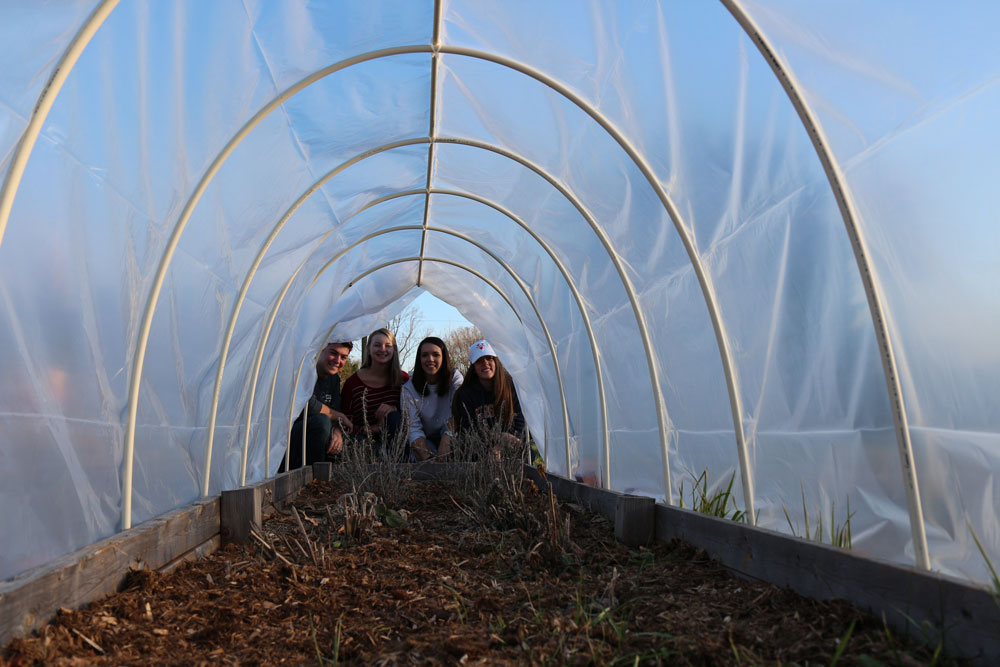
Even if second year Reanna Panagides’ dorm-bound bonsai tree shed its greenery in protest when she arrived back on Grounds last August, the 20 year-old didn’t give up on the diminutive tree, which lately has begun to sprout new leaves, even as autumn’s daylight dwindles.
It’s the same gentle persistence that’s allowed Panagides’ novel initiative “Perennials for Patients” – which she started as a first year nursing student back in 2016 – to quietly flourish. In its first year, the student-run group grew, harvested, assembled and delivered more than 30 small bouquets to UVA Medical Center’s patients and families most in need of a pick-me-up – and this year, with more volunteers and a grant to extend their beds’ growing season – they hope to do even more.
“Flowers have such a positive effect,” says Panagides, who grew up in Sterling, Va., and, as a high-schooler, volunteered at Reston Hospital delivering flowers. “I got a feel for how they impact patients, especially those who need a little extra comfort during the day. They’re something everyone can benefit from.”
In a hospital, though, not everyone’s lucky enough to receive flowers. That observation as a high schooler planted a seed in Panagides’ mind, where inspiration began to take root.
It was just a week into her first year at UVA that Panagides approached assistant dean of students Theresa Carroll about getting her idea off the ground. With funding from the School of Nursing class of 1966 endowment, Panagides purchased materials to construct three, long, rectangular raised beds amid Morven Farms’ kitchen garden, which she muscled into place and filled with rich compost and loam last fall. The following spring, she and a few fellow nursing students planted yellow poppies to summer Rudbeckia, Shasta daisies to sedum to Russian sage, weeding and watering their charges before standing back to let nature take its course. By May, and with help from a roster of what had become more than two dozen nursing student volunteers, the group harvested their first bouquets, adorning them with ribbons and tags, and delivered the blossoms to UVA Medical Center.
Sweet-scented though it is, there’s hard science behind their determined cultivation. A 2008 study found that 90 post-surgical patients recovering in rooms with plants required significantly less pain medicine, had lower blood pressure and heart rate, reported feeling less anxiety and fatigue, and had more positive feelings and higher satisfaction about their rooms when compared with patients without the benefit of greenery (Park & Mattson, 2008). A 2009 study published in the Journal of Environmental Psychology found that cognitive performance is better in offices with plants than those without. Even just the sight of leafy greens indoors appears to enhance creativity and mood (Shibata, & Suzuki, 2004).
And the benefits don’t just belong to patients, Panagides is quick to point out.
Gardening “really does help with stress, and promotes relaxation,” she explains. “You’re surrounded by trees, and scents, and even though the work is hard, I feel refreshed by it. It’s something I hope to continue throughout my entire life.”
This fall, Panagides and her volunteers have plans to enclose the trio of raised beds under “hoop houses” – greenhouse-like enclosures made of PVC pipe and plastic sheeting to protect delicate seedlings from the chill – to extend their growing season by four to six weeks. They’re also upgrading to drip line irrigation, and plan to start next year’s crop from seeds nestled among Morven Kitchen Garden’s greenhouses in the late winter.
Panagides is also looking to purchase plastic bud vases for patients at UVA Medical Center’s locked psychiatric unit where glass is prohibited, and plans to volunteer with Morven’s beekeeper over the hottest months to ensure the hives’ summertime health during a period when few students are around.
“We’re spreading the love through flowers,” she laughs.
###
